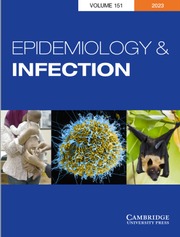Article contents
Some aspects of open-air education
Published online by Cambridge University Press: 15 May 2009
Extract
It was Heraclitus who said of his predecessors that they had much knowledge but no sense, and this criticism often comes to mind when workers pause in retrospect and wonder that the application of the quite adequate knowledge of a generation ago was not applied in a practical and wise manner. Perhaps it may seem that a long time elapsed after compulsory education was adopted before it was realized that a vast number of children were physically quite unfitted to benefit from the learning presented to them; and it was a still longer time before it was hesitatingly acknowledged that the art of living, the teaching of an hygienic way of life, was the most important aspect of education. For without this the benefits of the whole system are of little lasting worth or real utility. Thus it is that open-air education, born late in time, is of such paramount importance; because although ordinarily and primarily conceived for restoring delicate children to health, the main great permanent value of this work is that it teaches in a practical and pleasant manner the greatest of all arts—the art of living.
Information
- Type
- Research Article
- Information
- Copyright
- Copyright © Cambridge University Press 1937
References
- 1
- Cited by

